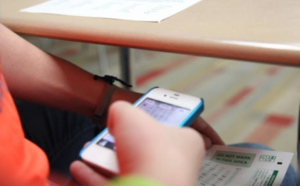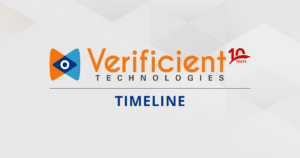Teachers taught that sharing is caring but they were definitely not referring to exam answers. In 2014, a cheating scandal went bust after an entire class at Downriver High scored a 100% in their test. Two juniors took pictures of the answer key and circulated it on a group text when the teacher wasn’t around. A major loss of common sense aside, the plan does show how easy it is to cheat with today’s technology.
Similarly, Stuyvesant High School, an institution that gave the world four Nobel laureates, blatantly covered up an elaborate cheating ring. One of New York’s most coveted schools became the poster child for cheating when investigators found that groups of students were allowed to use their mobile phones for state tests to get answers. Five years on, a new graduate candidly replied, “We all are just helping each other out. Stuyvesant breeds a culture of cheating, and you’re honestly stupid to not take advantage of it”. This goes to show how the scourge of cheating is also spilling over to the faculty. Negligence by teacher oversite is a probable reason for such incidents.

Here are some other insights and cases that will broaden your understanding of how cheating can have some real repercussions for students and institutions.
CHEATING DEVALUES HIGHER EDUCATION
An upsurge of educational fraud threatens to devalue higher education and undermine academic integrity. Not only that, it puts the reputation of students and the institute’s brand at stake.
The rise of contract cheating, which is defined as students employing an outsider to complete their assessed work for them, has already sounded an alarm in the educational community. Because of this, the credibility of higher education qualifications and academic outputs is often put under scrutiny.
For instance, the 2016 incident involving Western Kentucky University could have caused a devaluation of the school’s computer science program. As the International Center for Academic Integrity stated, the “institution risked a deterioration of educational quality” since the students did not have the initial skills necessary to succeed in the program. Experts believe that ongoing unchecked cheating in higher education will result in education becoming nothing short of a static process that produces worthless degrees.
CHEATING DAMAGES SCHOOLS’ REPUTATIONS
According to the International Center for Academic Integrity, fraudulent student qualifications lead to a risk of reputational damage for institutions of higher education.
In a surprising turn of events, Western Kentucky University had to suspend almost half of its international graduate students who were recruited by an India-based agent in 2016. The chairman of Western Kentucky University’s computer science program, James Gary, stated the students who were asked to leave the program “did not meet the requirements of their admissions, even though they were offered remedial help by the university.”
Stanford’s reputation also took a hit with the recent college admission scandal because degrees from the university no longer carry their former value. Besides, prospective employers might want to know if the graduates were admitted to the university on merit, versus having rich parents who were willing to bribe school officials. This is proof of how cheating undermines public faith in schools.
A report by Biomed Central rightly suggests that contract cheating has “ramifications for individuals’ learning outcomes, institutional reputations, educational standards/credibility, professional practice, and public safety.”
CHEATING COSTS SCHOOLS MONEY
Cheating can lead to lawsuits, which can end up costing schools hundreds of thousands of dollars in legal fees. Moreover, universities suffer a loss in tuition revenues when students are caught and suspended for using fraudulent means to pass their tests.
The recent college admissions scandal in the news in 2019 has already led to “lawsuits targeting elite universities” from students who were not admitted to the schools because their spot was taken by unqualified students. Stanford will have to pay legal fees related to the lawsuit filed against it from students who are claiming they were harmed by the college admission scandal. Like Stanford, many universities are facing a federal class-action lawsuit, which will require the schools to pay legal fees to defend.
Due to the spotlight put on wealthy contributions to colleges and universities for fraudulent admissions, legislation has been introduced to Congress to eliminate the tax advantage alumni donors receive for such donations. This could lead to a decrease in fundraising for institutions of higher learning.
CHEATING CAN CAUSE A LOSS OF ACCREDITATION FOR SCHOOLS
If a university loses accreditation, the school can lose federal funding, which often leads to the school’s closure. Graduates from unaccredited schools find it difficult to get a job because employers are reluctant towards hiring graduates from such schools.
An ideal case of this is Dickinson State University, which was placed on notice by its accreditor, the Higher Learning Commission because the university was graduating students without proper academic prerequisites or certified documents.
According to the Commission, the action was taken “because of concerns related to the University’s oversight of admissions and transfer procedures; its gathering and reporting of enrollment and related data; its accountability for, and oversight of, contractual relationships related to its academic program; the integrity of the program provided to certain international students; and its articulation of, and consistent adherence to, policies and procedures at the University or other levels.”
Loss of accreditation at the secondary level directly impacts students’ ability to secure scholarships or even get enrolled in a college of their choice.
DETER CHEATING WITH PROCTORTRACK
As the most student-friendly online remote proctoring solution, Proctortrack delivers both a live proctoring with AI and an automated, proctorless approach to offer convenience, comfort, ease of use, and security. Carefully designed with students and institutes in mind.
Proctortrack is the ONLY proctoring solution that is BOTH a light Desktop App (95% Load Processing) that continuously verifies identity and secures monitoring AND a browser extension (5% Load Processing) that ensures browser lockdown. This type of load processing distribution ensures an optimized LMS test experience and user performance.
These exclusive technologies guarantee that Proctortrack delivers the highest level of Exam Integrity at the:
- Core Operating System Level
- Screen Desktop Level
- User Level via Web Camera
- Testing Environment Level
In conclusion, there is a serious concern for the raising of critical consciousness on the part of both teachers and students. Online education has transformed teaching and learning for good but it remains equally prone to cheating. Therefore, colleges need to realize how important it is to maintain the credibility of their online or in-class exams. These incidents could have been easily been avoided if only the exams were monitored effectively. Proctortrack offers a robust solution to this persistent problem.
Related Article:
- How $70k/year (what?!?) Liberal Arts Colleges can reinvent themselves
- Have different needs? Proctortrack offers 4 levels of Online Proctoring
- Newbury College closes! A case for online proctoring







